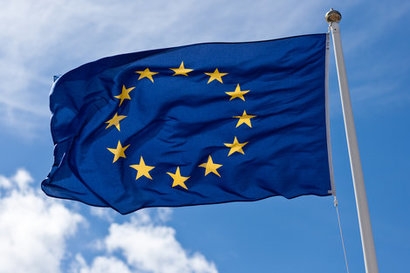
To become climate-neutral by 2050, Europe needs to transform its energy system, which accounts for 75 percent of the EU's greenhouse gas emissions. The EU strategies for energy system integration and hydrogen, adopted on Wednesday (8th July), will pave the way towards a more efficient and interconnected energy sector, driven by the twin goals of a cleaner planet and a stronger economy.
The planned investments have the potential to stimulate the economic recovery from the coronavirus crisis, while also creating jobs and boosting leadership and competitiveness in strategic industries that are vital to European resilience.
The EU Strategy for Energy System Integration will provide the framework for the green energy transition. It will mean that the energy system is planned and operated as a whole entity rather than the current model in which energy consumption in transport, industry, gas and buildings is happening in ‘silos' - each with separate value chains, rules, infrastructure, planning and operations. A connected and flexible system will be more efficient, and reduce costs for society. For example, this means a system where the electricity that fuels Europe's cars could come from the solar panels on our roofs, while our buildings are kept warm with heat from a nearby factory, and the factory is fuelled by clean hydrogen produced from off-shore wind energy.
The plan for energy integration is based on three main pillars, specifically a more circular energy system with energy efficiency at its core, greater electrification of end-use sectors from buildings to transport to industry and finally the utilisation of clean fuels, such as renewable hydrogen and sustainable biofuel and biogas, where electrification is difficult.
The hydrogen strategy supports energy integration through the decarbonisation of industry, transport, power generation and buildings across Europe, again powering sectors that are not suitable for electrification and also providing storage to balance intermittent renewable energy flows.
EGEC welcomed the adoption of the Communication from the European Commission on the EU Strategy for Energy System Integration, stating that the strategy should accelerate the renewable energy transition to solve the climate and economic crisis and that it is important that the Commission recognises a one-size-fits-all approach is impossible in the EU, as the national energy systems are so diverse.
“The Energy System Integration should not be based on simplified terminology with no clarification” said EGEC Secretary General Philippe Dumas. “It must also include a modelling for heating and cooling decarbonisation. We welcome the focus on circular energy systems and the attention given to geothermal district heating and heat pumps. These technologies accelerate decarbonisation, but they need a dedicated strategy”.
The next crucial change in 2020 should be to complete the internal energy market. To do so, the geothermal sector calls for an internal market for heat. The current interpretation of the internal energy market by the European Commission gives unfair advantage to electricity and fossil gas, at the expense of renewable heat. The focus on fossil gas is not compatible with the Paris Agreement nor the Commission efforts on climate-neutrality.
“We regret the lack of reference to a "made in Europe" manufacturing and production of the energy systems structured around local renewable energy sources such as geothermal” Philippe Dumas added. “The energy system integration should also have tackled more thoroughly the issue of heat poverty, which affects between 50 and 125 million people in the EU.”
For additional information:

